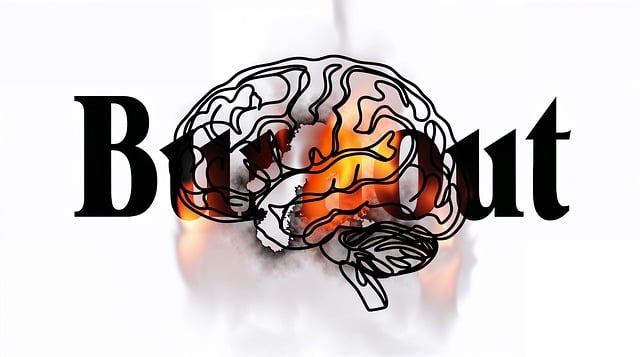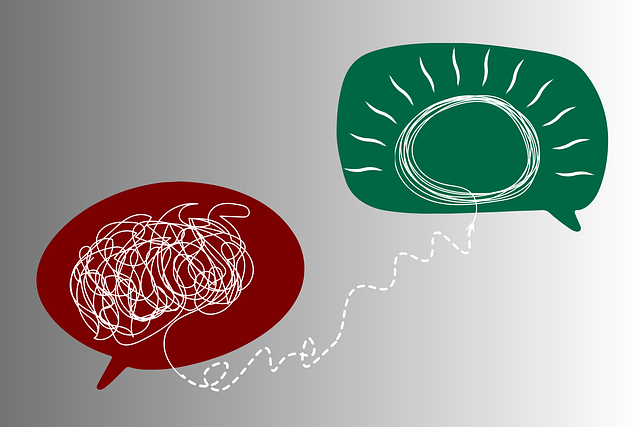Anxiety in children from Russian-speaking backgrounds requires tailored therapy addressing cultural and linguistic barriers. Holistic approaches like Mental Health Policy Analysis, cognitive-behavioral therapy (CBT), and mindfulness practices offer effective coping mechanisms. CBT targets negative thought patterns through assessments and manageable steps, while mindfulness techniques manage stress and enhance emotional intelligence. Early intervention and resilience building empower kids to improve self-esteem and regulate emotions for lifelong mental wellness.
Anxiety in children is a growing concern, but with the right tools, it can be managed effectively. This comprehensive guide explores various techniques to help young ones cope with anxiety, offering insights into recognizing signs and symptoms. We delve into specific therapy options, including Cognitive Behavioral Therapy (CBT) and mindfulness practices, proven effective for Russian-speaking children. Additionally, we provide strategies for building resilience, emphasizing the importance of holistic support for optimal mental wellbeing.
- Understanding Anxiety in Children: Recognizing Signs and Symptoms
- The Power of Therapy: Effective Russian-Speaking Therapies for Kids
- Cognitive Behavioral Therapy (CBT): A Step-by-Step Guide
- Mindfulness and Relaxation Techniques for Calming Anxious Minds
- Building Resilience: Strategies to Support Children's Mental Wellbeing
Understanding Anxiety in Children: Recognizing Signs and Symptoms

Anxiety is a common challenge faced by many children today, yet it’s crucial to recognize that its presentation can vary significantly from adult experiences. Understanding anxiety in kids requires a keen eye for spotting subtle signs and symptoms that may manifest in their unique ways. Children might express anxiety through physical complaints like stomach aches or headaches, excessive shyness, avoidance behaviors, or even aggression. They may also struggle with concentration, have trouble sleeping, or exhibit repetitive behaviors.
Recognizing these indicators is the first step towards providing effective therapy for children, especially those from Russian-speaking backgrounds who may face additional cultural and linguistic barriers. A holistic approach that considers Mental Health Policy Analysis and Advocacy can help ensure tailored support, addressing both the child’s immediate needs for Anxiety Relief and their long-term mental health development. Burnout Prevention is also vital, as early intervention can foster resilient coping mechanisms for life’s challenges.
The Power of Therapy: Effective Russian-Speaking Therapies for Kids

For children experiencing anxiety, therapy can be a powerful tool to develop coping skills and foster positive thinking. Russian-speaking therapies specifically tailored for kids offer unique and effective approaches to address anxiety disorders. These therapeutic methods are designed to create a safe and supportive environment where children can openly express their feelings and learn valuable strategies to manage stress.
One such approach is cognitive-behavioral therapy (CBT), which helps children identify negative thought patterns and replace them with healthier, more realistic ones. Through engaging activities and techniques like relaxation exercises, kids gain practical stress reduction methods that they can use throughout their lives. By empowering young individuals with these coping skills, therapists enable them to navigate challenging situations with increased confidence and resilience.
Cognitive Behavioral Therapy (CBT): A Step-by-Step Guide

Cognitive Behavioral Therapy (CBT) is a highly effective approach for managing anxiety, particularly in children who speak Russian. This therapy focuses on identifying and changing negative thought patterns and behaviors that contribute to anxiety. In CBT, therapists work collaboratively with children to help them understand their fears and worries by breaking down complex issues into manageable steps.
The process begins with assessing the child’s current anxiety levels and triggers through conversations and various assessment tools. Once identified, therapists use specific techniques like challenging negative thoughts, gradual exposure to feared situations, and teaching coping skills to help kids manage their anxiety effectively. Regular practice of these strategies at home, often with parental support, reinforces learning and promotes long-term stress reduction methods. Trauma support services are also integrated if needed, providing additional coping skills development for children who have experienced traumatic events.
Mindfulness and Relaxation Techniques for Calming Anxious Minds

Mindfulness and relaxation techniques offer powerful tools to calm anxious minds, especially for children speaking Russian. These practices are a form of therapy that can be incorporated into daily routines to manage stress and anxiety effectively. By focusing on the present moment and learning to observe thoughts and feelings without judgment, individuals can reduce the intensity of anxious reactions. Techniques such as deep breathing exercises, progressive muscle relaxation, and guided meditation help to quiet the mind and body, fostering a sense of calm.
Incorporating mindfulness into daily life is an accessible way to provide therapy for children and prevent burnout among healthcare providers who may be at heightened risk of stress and anxiety. These practices enhance emotional intelligence by teaching individuals to recognize and manage their emotions, leading to better coping strategies. Stress reduction methods, when learned early, can have a profound impact on long-term mental health, ensuring a more balanced and resilient mindset.
Building Resilience: Strategies to Support Children's Mental Wellbeing

Building resilience is a crucial aspect of anxiety management for children, especially those from Russian-speaking backgrounds who may face unique challenges. Therapy for Children in this linguistic group often incorporates strategies tailored to their cultural context and specific needs. By focusing on self-esteem improvement and mental wellness, therapists empower kids to navigate anxiety and build coping mechanisms that will serve them throughout their lives.
Resilience-building techniques involve teaching children effective ways to manage stress, regulate emotions, and adapt to difficult situations. This may include cognitive behavioral therapy (CBT), mindfulness practices, and social skills training. These strategies not only help Russian-speaking children cope with immediate anxiety but also foster a sense of empowerment, enabling them to face future challenges head-on.
Anxiety management is a vital aspect of fostering healthy development in children. By understanding and recognizing anxiety signs early on, parents and caregivers can navigate their young ones towards effective solutions. The article has explored various techniques, from therapy types like Cognitive Behavioral Therapy (CBT) and the power of Russian-speaking therapies, to mindfulness practices and resilience-building strategies. Integrating these methods allows for a comprehensive approach to supporting children’s mental wellbeing and equipping them with tools to manage anxiety in their lives.








